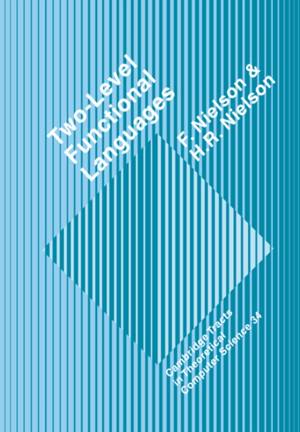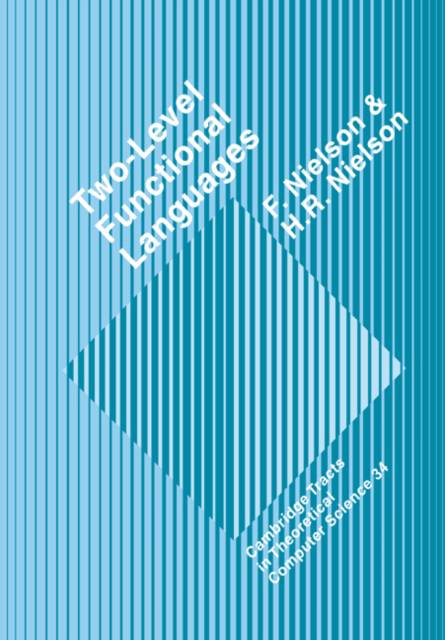
Je cadeautjes zeker op tijd in huis hebben voor de feestdagen? Kom langs in onze winkels en vind het perfecte geschenk!
- Afhalen na 1 uur in een winkel met voorraad
- Gratis thuislevering in België vanaf € 30
- Ruim aanbod met 7 miljoen producten
Je cadeautjes zeker op tijd in huis hebben voor de feestdagen? Kom langs in onze winkels en vind het perfecte geschenk!
- Afhalen na 1 uur in een winkel met voorraad
- Gratis thuislevering in België vanaf € 30
- Ruim aanbod met 7 miljoen producten
Zoeken
Omschrijving
The authors describe here a framework in which the type notation of functional languages is extended to include a notation for binding times (that is run-time and compile-time) that distinguishes between them. Consequently, the ability to specify code and verify program correctness can be improved. Two developments are needed, the first of which introduces the binding time distinction into the lambda calculus in a manner analogous with the introduction of types into the untyped lambda calculus. Methods are also presented for introducing combinators for run-time. The second concerns the interpretation of the resulting language, which is known as the mixed lambda-calculus and combinatory logic. The notion of "parametrized semantics" is used to describe code generation and abstract interpretation. The code generation is for a simple abstract machine designed for the purpose, it is close to the categorical abstract machine. The abstract interpretation focuses on a strictness analysis that generalizes Wadler's analysis for lists. It is also shown how the results of abstract interpretation may be used to improve the code generation.
Specificaties
Betrokkenen
- Auteur(s):
- Uitgeverij:
Inhoud
- Aantal bladzijden:
- 312
- Taal:
- Engels
- Reeks:
- Reeksnummer:
- nr. 34
Eigenschappen
- Productcode (EAN):
- 9780521018470
- Verschijningsdatum:
- 22/08/2005
- Uitvoering:
- Paperback
- Formaat:
- Trade paperback (VS)
- Afmetingen:
- 170 mm x 244 mm
- Gewicht:
- 498 g

Alleen bij Standaard Boekhandel
+ 190 punten op je klantenkaart van Standaard Boekhandel
Beoordelingen
We publiceren alleen reviews die voldoen aan de voorwaarden voor reviews. Bekijk onze voorwaarden voor reviews.









